#Kinsasa
Text

#himpnosis 😵💫#London#Paris#Singapur#Karachi#Estambul#BuenosAires#Calcuta#Lagos#Kinsasa#Tianjin http://aabon35.blogspot.com http://arubio28814.blogspot.com
9 notes
·
View notes
Text

Topher-Hou
Altura: 180 metros
Peso: 140,000 toneladas
Primer Avistamiento: Kinsasa [Tierra: Teratoverso]
Guarida: Selva del Congo [Tierra: Teratoverso] Ciudad Portuaria [Avatarverso]
Controles: Tierra Control [Puño del retumbar, lanzamiento de rocas]
Aspecto: Mandril + Gelada
Aliados:
Humanos: Aang, Katara, Soka, Iroh, Zuko
Kaijus y otras bestias: Anguirus, Godzilla, Mothra, Rodan, Anguirus
Enemigos:
Humanos: Ozai y Azula, Aang, Katara, Soka, Iroh, Zuko (Estos ultimos anteriormente)
Kaijus y otras bestias: Sanda, Oodako
2 notes
·
View notes
Text

¡Hola, buenos días, humanidad! Feliz domingo. Hoy os dejo la imagen de Kinsasa, la mayor ciudad de la República Democrática del Congo. Caótica y repleta de música y ganas de vivir, Kinsasa (o Kin, como la llaman los nativos) es una ciudad que no se visita; se experimenta. Aunque comparte elementos con otras ciudades africanas, aquí todo es más grande, rápido y fuerte.
Puedes elegir culpar de tu situación a las circunstancias, a la mala suerte, o a los demás. Puedes explayarte en tu queja todo el tiempo que consideres oportuno; algunas personas se quejan y sienten lástima por sí mismas el resto de sus vidas. O bien puedes luchar por salir de ese mal trance y demostrarte a ti, y a la vida, que una racha adversa, por muy negativa que sea y por muy llena de infortunio que esté, es incapaz de doblarte.
4 notes
·
View notes
Video
youtube
Kinsasa: Encuentro con las víctimas de la violencia, 1 de febrero de 202...
0 notes
Text
Peregrino de la paz.
31 – 1 – 2023
Viaje apostólico a la República Democrática del Congo: Encuentro con las autoridades, la sociedad civil y el Cuerpo Diplomático
Viaje apostólico a la República Democrática del Congo: Saludo del Santo Padre a los periodistas durante el vuelo a Kinsasa
Viaje apostólico del Santo Padre a la República Democrática del Congo y a Sudán del Sur (31 de enero – 5 de febrero de 2023)
San…
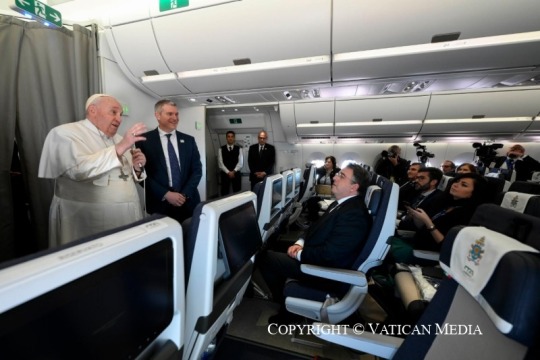
View On WordPress
0 notes
Text
Nuestro maravilloso Dios
miércoles, 24 ago. 2022
En sintonía con Dios
«Invócame en el día de la angustia; te libraré y tú me honrarás». Salmos 50: 15
PAUL RATSARA nunca supo quién puso el veneno en su comida, pero quienquiera que haya sido, tenía toda la intención de matarlo. Después de una larga recuperación, Paul no regresó a la escuela, sino que se quedó cuidando de la granja familiar. ¿Sería esta su suerte por el resto de su vida? La historia la cuenta Derek J. Morris.
Cuenta Morris que un día, mientras Paul hacía su trabajo diario, encontró un libro que le llamó la atención. Se trataba de un ejemplar del Nuevo Testamento y los Salmos, en su idioma natal, el malgache. Nunca imaginó Paul que el pequeño libro se convertiría en su compañero inseparable. Comenzando con el Evangelio de Mateo, leyó todo el libro una y otra vez. ¿Por qué nadie le había hablado antes de Jesús?
Entonces Paul decidió reanudar sus estudios, en otra ciudad. Ahí comenzó a asistir a una iglesia cristiana, donde pronto se convirtió en líder juvenil y, tiempo después, ministro del evangelio. Desde entonces, según relata Derek J. Morris, «Paul se ha dedicado a compartir con otros el evangelio de Jesucristo», incluso a riesgo de su vida.
Una de esas difíciles experiencias se produjo en Kinsasa, la capital de la República Democrática del Congo. Paul caminaba por la calle cuando un hombre armado lo forzó a entrar en un vehículo donde lo esperaban otros dos, también armados. Lo robaron y luego le dijeron que lo matarían. Entonces Paul recordó nuestro versículo para hoy: «Invócame en el día de la angustia...».
Un sentimiento de profunda paz inundó su corazón. «Soy un misionero proveniente de Madagascar —dijo a sus raptores—, y estoy aquí para servir a Dios y a la humanidad, incluyéndolos a ustedes». Al poco rato, los delincuentes comenzaron a discutir acaloradamente. Al final, el que parecía ser el líder dijo en francés: « ¡No vamos a hacerle daño! ¡Él es un hombre de Dios!». De pronto, el vehículo se detuvo, y le dijeron: «Pastor, es un hombre libre. Se puede ir».
¿Qué hizo Paul, entonces? En lugar de huir del lugar, les pidió a los bandidos que lo regresaran a la ciudad. Ellos accedieron, y en el camino de regreso le devolvieron lo que le habían robado, y le recomendaron qué calles no debía tomar !porque podría haber bandidos por ahí!
¿Qué aprendió Paul Ratsara de su experiencia? «He aprendido —dijo— que, para vivir, primero debes estar listo para morir. Para ser libre, tienes que ser libre del temor a la muerte. [...]. Mi oración diaria es estar en sintonía con Dios en cada momento, y creer que sus ángeles están conmigo».*
«Estar en sintonía con Dios en cada momento». Como oración, ¡no está mal para comenzar el día! ¿No te parece?
Maravilloso Dios, hoy quiero estar «en sintonía contigo», y que tus ángeles estén conmigo en todo momento.
*Derek). Morris, Radical Evidence, Autumn House Publishing, 2013, pp. 31-40.
0 notes
Photo

#africafashion #robertomilano #africa #africastyle #togo #benin #burkinafaso #congo #camaroon #senegal #ethiopia #elitra #gine #nigeria #gambia #niger #southafrica #somalia #liberian #mali #chad #egyptian #libya #kinsasa #lubumbashi #zambian #africamusic #africabussines #work (Robertomilanomerter) https://www.instagram.com/p/Cc-wdBso6M4/?igshid=NGJjMDIxMWI=
#africafashion#robertomilano#africa#africastyle#togo#benin#burkinafaso#congo#camaroon#senegal#ethiopia#elitra#gine#nigeria#gambia#niger#southafrica#somalia#liberian#mali#chad#egyptian#libya#kinsasa#lubumbashi#zambian#africamusic#africabussines#work
0 notes
Video
Domingo 09/19/21 hora 10:00 am Ny Manhattan nos vemos ✌️ #stalinb #djfreddyrey #kinsasa (at New York City, N.Y.) https://www.instagram.com/p/CT_TAWtgTI-/?utm_medium=tumblr
0 notes
Text

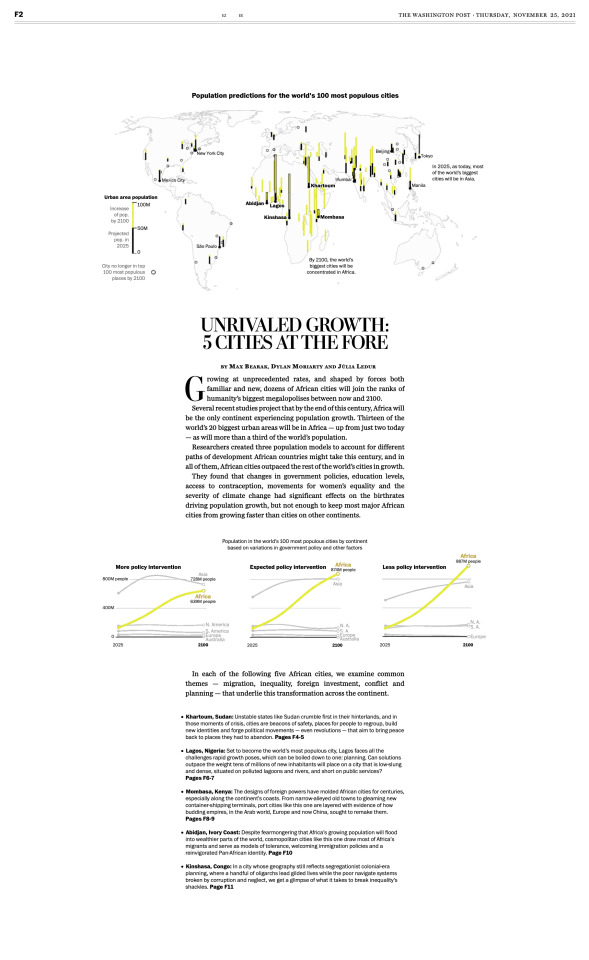
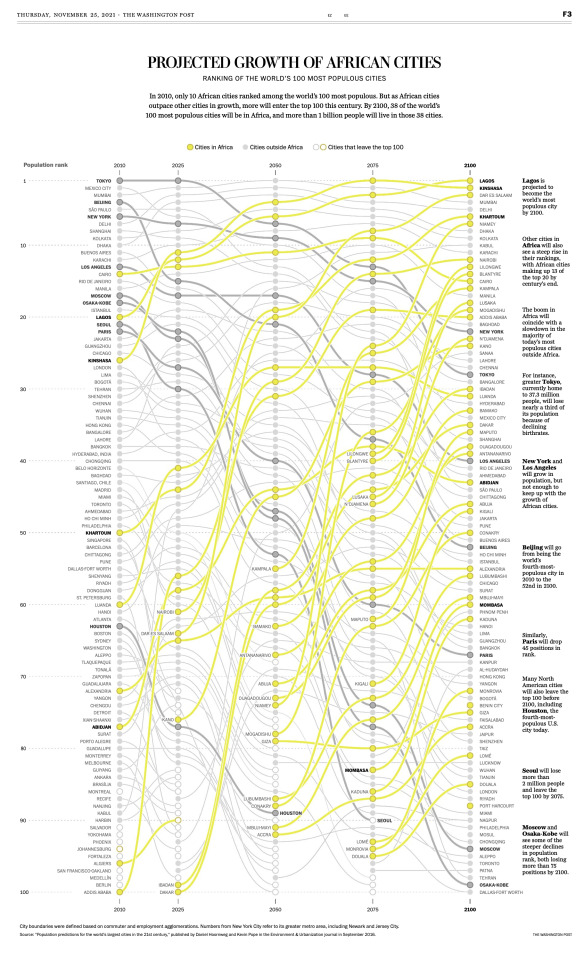
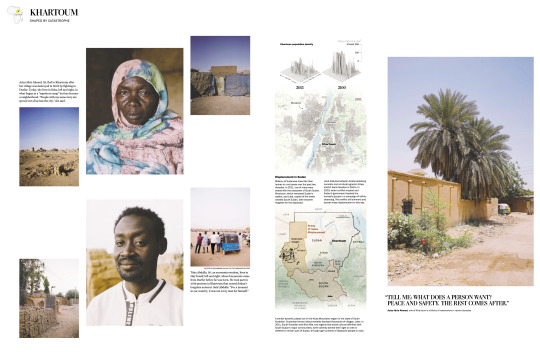
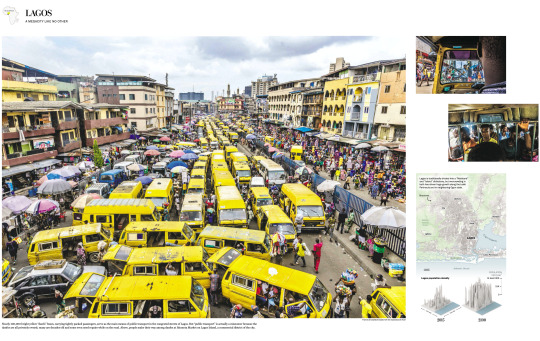

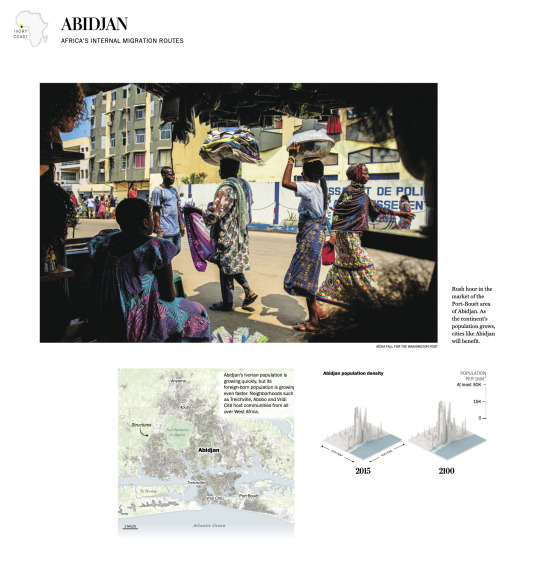
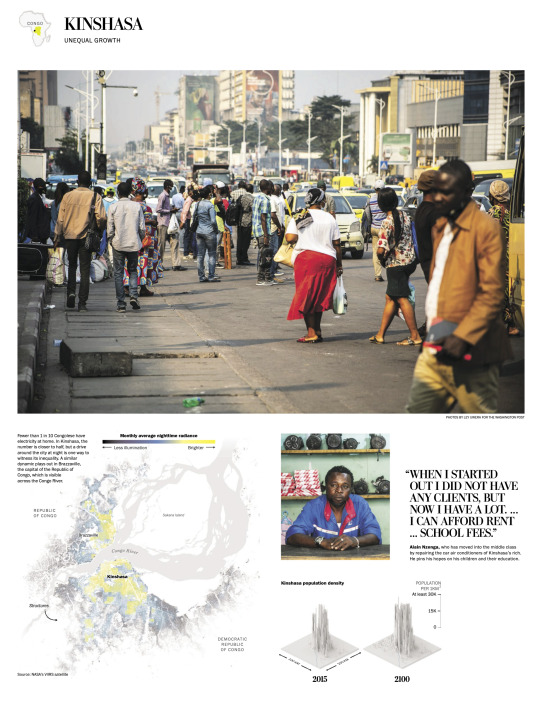
⩔
El Washington Post publicó ayer un suplemento especial en su edición del finde de Acción de Gracias centrado en las ciudades emergentes de África, un continente normalmente olvidado en el relato informativo internacional.
En el cuadernillo especial podemos ver un gráfico sobre las 100 ciudades más pobladas del continente y un repaso visual a las cinco ciudades escogidas: Jartum (capital de Sudán), Lagos (Nigeria), Mombasa (Kenia), Abiyán (Costa de Marfil) y Kinsasa (capital de la Rep. Democrática del Congo).
» The Washington Post, del 28 de noviembre de 2021
4 notes
·
View notes
Video
youtube
DW Documental analiza el Congo, uno de los países entre los más pobres del mundo con mayor porcentaje de millonarios. El documental retrata a personas que han alcanzado la riqueza: músicos, propietarios de minas, empresarios y predicadores de dudosa fama.
En Kinsasa, la capital, los nuevos ricos viven en enclaves seguros y lujosos, mientras los niños trabajan en las minas de coltán en el este del país. (4/4/2021)
4 notes
·
View notes
Text
Isaac Musekiwa: Our forgotten gift to Congolese rhumba
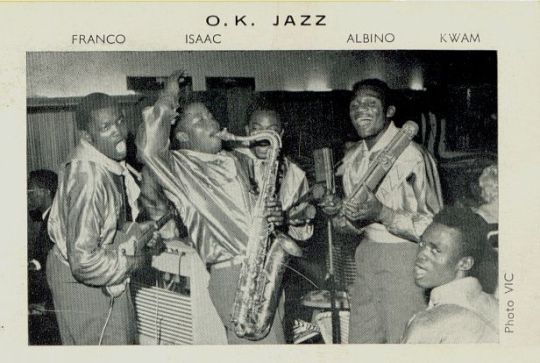
A lot has been said about the influence of Congolese and East African musicians on Zimbabwean music.
We know about rhumba and Kanindo, and how they gave us our Sungura. We know about the Congolese guys that moved to Zimbabwe over the years, making a major impact; Andrew Ngoyi and Joseph Kishala with their OK Success Band, which provided a base for many Zim legends. There was Real Sounds of Africa, Ghaby Mumba’s band, the chaps that sang those soccer songs, like Dynamos vs Tornados. Later, we had the likes of TP Nyekese (Ndochi), Diamond Musica and other DRC acts who came to Zim.
That, we knew. What many may not know is the story of one guy who went the opposite way.
His name was Isaac Musekiwa, an auto mechanic who went to the Congo in the 1950s and was to later become a key member of guitar legend Franco’s TP OK Jazz Band, the most influential rhumba band of all time.
Found the story intriguing. Here’s how the story goes;
So, Isaac was born around 1930 in Bulawayo. He moved to Salisbury in his teens, it appears. There, he would watch a local police band play, and would sneak into the rehearsal room where he taught himself how to play saxophone.
In 1949, a young Isaac moved to Lubumbashi, then known as Elisabethville, the capital of the mineral-rich Katanga province of the Congo. There, he worked as a mechanic and a driver by day, and a sax player in the local bars by night.
In Elisabethville in the early 1950s, publisher and saxophonist Ralph Benatar was doing the rounds in the pubs when he heard Isaac play. Within days, Ralph had convinced Isaac to travel with him to Kinsasa, Leopoldville then, where a new band was being set up.
Sax players were rare then. Isaac Musekiwa’s sax totally set apart the new band, African Jazz, from other acts. They had the sax player, others didn’t. He even wrote some English songs sung by Joseph Kabasale, band leader. This was a first in Congo. Most music was either Lingala or French.
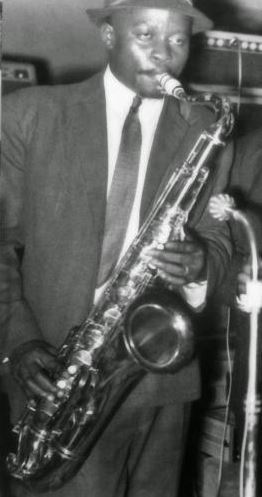
Isaac’s sax had helped redefine the rhumba sound then, developing a unique sound that came to be known as “The OK Jazz School".
Isaac became a much sought after studio musician. He then made a big move, joining Franco Luambo’s band, OK Jazz, in 1957. Over the years, Franco was to be Congo’s greatest.
The band came to be known as TP (Tout Puissant, French for "all powerful") OK Jazz.Isaac became close friends with Franco, for decades. In 1983, the band toured Europe and the US (it’s hard to think of many African, let alone Zimbabwean, musicians who toured abroad through the 60s).
Another member of the band was Sam Mangwana, the renowned vocalist who some also say was born of a Zimbabwean father, although that’s not too clear.
In his book Rumba on the River: A History of the Popular Music of the Two Congos, Gary Stewart interviewed Isaac while he was on tour in the US with the band in 1983. He spoke about how the band had completely changed how rhumba was played.
“There was music. Another kind of music. But when Kabasale started to sing, he changed everything. And when Nico and Baraz started to play the solo for the guitar…you see that’s how the music started,” he says.
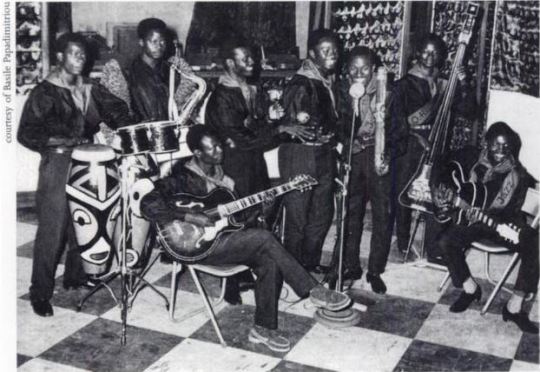
TP OK Jazz: Isaac Musekiwa, is 2nd from left. King Franco is on the front right
I’ve been searching high and low for more information on Isaac Musekiwa.
I reached out to veteran journo Ish Mafundikwa, one of my big brothers I go to when I want the lowdown on Zim arts and its rich history. It turned out Ish had actually met Isaac! They met during TPOK’s tour of Amsterdam. Ish wrote this article on Franco for Parade magazine in 1990.
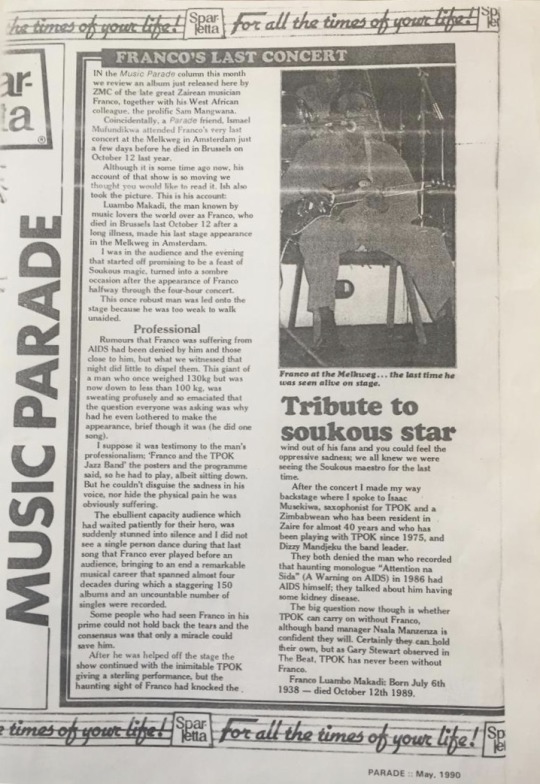
After this chat with Isaac, Ish had hoped to have a proper interview with the man, but sadly Isaac died before the band’s planned return to Amsterdam.
There isn’t much else out there. Just his music; the wailing sax. He was on top form on tenor sax on Como Quere, released in 1961.
He appears on videos of the band performing; in Abidjan in 1980. In Utrecht in Netherlands, and in Brussels.
I want to know how he did it. How does a guy in his teens leave his country in the ‘50s, to settle far away in the Congo, and make it? He was in the Congo when the country was in upheaval. Congo’s 1960 independence, the Lumumba assassination, the rise of Mobutu, and all the stuff that followed. He played sax through it all. And the language difference; how did he do it? It’s incredible.
It seems Isaac fought diabetes for many years, and was even taken ill while on that US tour. In 1990, a result of gangrene caused by diabetes, Musekiwa had one leg amputated. So ended his music years.
“We just liked music...”
He performed with Congo’s biggest and most successful band, under its most celebrated guitarist, but I doubt he ever made much money.
In one interview, he spoke with regret about all the many years wasted without getting what was due to them from all the tours and record deals.
“We were very young, all of us. We didn’t know that some records, you can get some money from that. We just liked music…”
In 1989, Franco died. Tens of thousands lined the streets for his funeral. Mobutu declared four days of mourning. There are streets in Kinshasa named after the great.
Two years after Franco died, Isaac Musekiwa died in Kinshasa. That’s how it ended, this stellar career of 30 years with one of Africa’s iconic bands. It ended in obscurity, far away from his country of birth, virtually unknown to his people.
16 notes
·
View notes
Video
youtube
Kinsasa, Santa Misa, 01 de febrero de 2023 Papa Francisco
0 notes
Text
0 notes
Text
Introduction to Lingala’s Pronunciation
Hey, everyone! As promised, here’s a post about Lingala and I’ll start with pronunciation. An important note, though: the book I’m taking this from is just a conversation guide and it’s absolutely everything I know on Lingala (which is next to nothing, honestly), so it’s not gonna be anything thorough, I’ll just copy what the book tells me.
Intonation
Lingala has two tones: a low tone and a high tone. I will mark high tones by bolding the syllable.
The intonation is very important, as it determines the meaning of a word. Each word has its own intonation which is invariable.
For instance, samba (all low) means “samba”, but samba (all high), means “a pleading” (from the verb kosamba, to plead).
The verb kokoma (all low) means “to write”, while kokoma means “to arrive”.
Moto can have three meanings depending on its intonation:
Moto: head
Moto: human being
Moto: fire
Vowels
A [a] (kotanga: to count, to read)
E [e] (mabele: earth, soil, ground) or [ɛ] (ee: yes)
I [i] (mbisi: fish)
O [o] (moto: head) or [ɔ] (moto: fire)
U [u] (sukali: sugar)
AI and OI must be pronounced by saying each letter separately (A-I and O-I), not as diphthongs (moi: sun, ngai: me)
Consonants
C, H, J, Q, R, and X do not exist, even though H and J are sometimes found in some people’s names or even names of certain places (as in Mbuji-Mayi).
B [b] as in English
D [d] as in English
F [f] as in English
G [g] as in “aGape”, NEVER as in “Geography” (koganga: to shout, goyi-goyi: lazy)
K [k] as in English
L [l] as in English
M [m] as in English
N [n] as in English
P [p] as in English
S [s] as in “Sound”, NEVER as in “pleaSure” or “riSe” (sani: plate, mosala: work)
T [t] as in English (always pronounced hard, though, never as an American would say the “TT” in “better” nor as a glottal stop, or anything, just “t” as in “true”)
V [v] as in English
W [w] as in English
Y [j] as in “Young”, NEVER as in “psYchologY” (nyama: beast)
Z [z] as in English (zamba: forest)
SH [ʃ] as in English, in foreign words or proper nouns (Kinshasa; sometimes pronounced as if it were written “Kinsasa”, though)
WA is pronounced in one go (bwato: pirogue)
Some consonants are preceded by an M or an N, especially at the beginning of a word. These consonants must not be pronounced distinctly one after the other, but rather as one; they are prenasalised:
MB [ᵐb] as in “mboka”: town, village, country
MF [ᵐf] as in “nkil’a mfwenge”: a tie (literally: squirrel tail)
MP [ᵐp] as in “mpasi”: hard, complicated
MV [ᵐv] as in “mvuandu”: rich
ND [ⁿd] as in “ndako”: house
NG [ᵑg] as in “ngungi”: mosquito
NK [ᵑk] as in “nko”: on purpose
NS [ⁿs] or [ts] as in “(n)se” if pronounced [ⁿse] or “nse”if pronounced [tse]: low, on the ground
NT [ⁿt] as in “ntolo”: chest (the part of the body, not the thing you find pirate treasures in)
NZ [ⁿz] as in “nzala”: hunger
Sometimes, you’ll see a M’F or an M’V, with an apostrophe between the two consonants. This means you have to almost not say the M.
NOTE: the apostrophe in “nkil’a mfwenge” indicates an elision.
And that’s it for this post! I made sure to write down only the stuff I was sure I understood, but still, I am very much a newbie to all this, so if by any chance you do know that I have made a mistake, don’t be afraid to correct me!
59 notes
·
View notes
Photo

🆕️ Season 2022 🧥 Model:BritishLord 🎨 Colors:7 📐 Sıze : 46/56=6 PIECES 🟠🟡🟢🔵🟣🟤⚪ 🇮🇹𝗥𝗢𝗕𝗘𝗥𝗧𝗢 𝗠𝗜𝗟𝗔𝗡𝗢 ✅ instagram/robertomilanoofficial ✅Whatsaap/ 📞 📳 +905074460905 #africafashion #robertomilano #africa #africastyle #togo #benin #burkinafaso #congo #camaroon #senegal #ethiopia #elitra #gine #nigeria #gambia #niger #southafrica #somalia #liberian #mali #chad #egyptian #libya #kinsasa #lubumbashi #zambian #africamusic #africabussines #mertertekstilmerkezi (Robertomilanomerter) https://www.instagram.com/p/CcKoILFIAIF/?igshid=NGJjMDIxMWI=
#africafashion#robertomilano#africa#africastyle#togo#benin#burkinafaso#congo#camaroon#senegal#ethiopia#elitra#gine#nigeria#gambia#niger#southafrica#somalia#liberian#mali#chad#egyptian#libya#kinsasa#lubumbashi#zambian#africamusic#africabussines#mertertekstilmerkezi
0 notes
Text


Congo, 500 Francs, Specimen, 1963.
#Congo #Kinshasa #Congolese #Francs #Kinsasa #Zaire #Banknotes #Banknote #Papermoney
0 notes